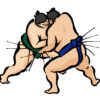What does “hekomu” mean? in English?ヘコむ?凹む?

Kinou sigoto de misutta-, hekomu wa-.
昨日仕事でミスったー。ヘコむわー。
そんなにへこむなよー。
Sonna ni hekomuna yo-.
“Hekomu(へこむ、ヘコむ、凹む)" has a meaning that has been used for a long time, but recently there are young people (and some adults) who use it to describe their mental state.
The meaning and origin of “hekomu" are explained below.
What does “hekomu" mean?
“Hekomu" is a verb that describes a state where something is depressed or dented.
Recently, young people use “hekomu" as slang. Unlike many other slang, it is used by some adults because it is easy to imagine its meaning and use.
In this case, the meaning of the word is “depressed", “disappointed", “feeling bad", and “energy is depleted".
The word indicates that the delicate hearts of modern youth are being beaten and under pressure which causes deformation or crushes to their heart and that is painful.
Young people casually express such a mental state.
Origin of “hekomu"
Some humorous books remaining from the Edo period have descriptions of “hekomu", which shows that people of that era used the word in the same way as young people today.
However, such meaning has not been used since then, and it is believed that it has spread over the last 10 to 20 years.
There seem to be some theories about why “hekomu" as a slang spread.
The first is that young people in the late 1990s came up with a good word to describe their state of feeling blue.
Another theory is that the comedian called Hitoshi Matsumoto, who is very popular since the late 1980s began using the word “hekomu".
He commented on the radio program, saying, “Nobody used that word before, and I think it is a good word to express."
Kanji of “hekomu" and the word of the opposite meaning
“Hekomu" is “凹む" when written in kanji.
This is like a symbol, so people outside of Japan who are not familiar with Kanji can easily understand it.
In Japan several decades ago, many thought of this character as a “symbol." However, since it was added the “Kanji in common use", it has been taught in schools as kanji now.
By the way, the opposite kanji for “凹" is ”凸".
This kanji is also easy to understand like a symbol, right?
Both of them came from China long ago.
“凹" has “Kun-yomi (native Japanese reading)" such as “hekomu(へこむ、凹む), kubomu(くぼむ、窪む)", but “凸" does not.
The idiom “凸凹" that combines them reads as “dekoboko(でこぼこ), outotsu(おうとつ)".
A variant of “hekomu"
Since it is a “hekomu" verb, it has a verb variant.
Basic form
hekomu
へこむ
Negative form
hekomanai
へこまない
Will / Solicitation
hekomou
へこもう
Polite expression
hekomimasu
へこみます
Past tense
hekonda
へこんだ
Assumption / condition
hekomeba
へこめば
hekondara
へこんだら
Imperative form
hekome
へこめ
Example sentences with “hekomu"
Kyou mensetsu nano ni densha ga tomatte te hekomu wa-.
今日面接なのに電車が止まっててヘコむわー。
I have a job interview today but the train service is interrupted which is so frustrating.
Sakki joushi ni zangyou tanomarete hekonderu.
さっき上司に残業頼まれてヘコんでる。
I am a little unhappy because my boss told me to work overtime.
A: Sakki kimi no imouto ni attakedo nandaka hokondeta mitai.
A:さっき君の妹に会ったけどなんだか凹んでたみたい。
A: I met your sister earlier, but she seemed feeling down.
B: Kareshi ni furarete hekonderu.
B:彼氏にフラれて凹んでる。
B: She has been sad as her boyfriend ditched her.
A: Anna ni naka yokatta noni? Sore wa hekomu yone.
A:あんなに仲良かったのに?それはヘコむよね。
A: They were in love so much, weren’t they? That makes her sad.
Shuusyoku no mensetsu zutto ukaranakute hekomu.
就職の面接ずっと受からなくてヘコむ。
I am frustrated because I keep failing to pass job interviews.
Iya na koto ga attemo watashi wa zettai ni hekomanai!
嫌なことがあっても私はぜったいに凹まない!
No matter what obstacles appear, I will never give up!
Kettara kabe ga hekonda.
壁を蹴ったら壁が凹んだ。
I kicked the wall and the wall was dented.
Itusumade hekondendayo, genki dase yo!
いつまで凹んでんだよ、元気出せよ!
Stop worrying, cheer up!
Aitsu no sei de shiai ni maketanoni nande anna ni genki nano? Chotto wa hekome yo.
あいつのせいで試合に負けたのになんであんなに元気なの?ちょっとはヘコめよ。
We lost the game because of him but he doesn’t seem to care. He should show feeling a little guilty.
Kyou, shigoto de misu shita. Hekomi chuu.
今日、仕事でミスした。へこみ中。
Today I made a mistake at work. In the middle of feeling down.














